The Sunday Poem: “Every Time” by Michel Krug
I cranked the Woody Shaw Jr.
“Every Time I See You”
Marveling at the range
Authentic modal with a hint
I cranked the Woody Shaw Jr.
“Every Time I See You”
Marveling at the range
Authentic modal with a hint
I am the sound,
the spontaneous voice you hear
beyond the melodic trance,
an array of multi-timbred,
fragmented, impetuous harmonies and rhythms
to carry you into an alternate dimension,
He jazzed his way into my heart
with pulsing beats that have surpassed
the resounding rhythm of the jungle drums.
I present you with a disgusting floor,
covered with ocher lumps of puke,
piles of paper refuse, cigarette butts,
all swimming in a sea of black water.
A raggedy man lived for music and Nina Simone,
called himself “Mr. Bojangles,”
played jazz on his secondhand sax,
tap-danced for tips and smiles.
Jazz is a journey. The
listening keeps us
envisioning how creativity
is transformative. Jazz is a
journey, a sound, a tune, a note,
Antonio, steal me away from him
with a mango slice
on the tip of your knife
When he entered a club ‘round midnight,
all 88 keys would break into a grin
and the stool would slide out from under
to invite him to sit down and play.
Prisms resound, glow dissonant—
refracted word-dyes salvaged from malaise.
A bleeding swatch of rainbow,
cordless stains on muslin,
stacks of frightened tightropes,
my slippers thin and worn –
When that first rumbling bass line
Tells me I’m listening to Gordon Goodwin’s
Big Phat Band playing “Jazz Police,”
I can’t help it, I always see an LAPD squad car
swinging out of the station
flipping on that groovy trumpet siren
as they join a pursuit with the whole horn section.
If ever
I am subjected to
Further medical exploration
& something
Identified as Bio
Is discovered
Hurrying to a dental appointment
I didn’t want to go to in the first place
an interminable red light and honking traffic
and the curve where people merge
20 MPH faster than necessary
four lanes into two
not a good day overall
though Sonny Rollins is playing loud;
Sheets of music laid across a checkered table cloth
spread out like streets across the city.
Like the quarter notes on page one, a crescent moon
is seen rising in the ink dark sky.
cohen says there are major falls
and minor lifts that come before
the fourths and fifths and i suppose
he’s probably right, most likely right
but this is not about some hallelujah
Woke up this morning to the Bugle Call Rag,
Straight no chasers made my head real bad.
Nothing left for breakfast … goodbye pork pie hat,
Dressed with chilies (ah um) – never hotter than that!
During a brief respite from the hard rain,
I heard a music born of spring and sunsets
coming from spinning black platters.
Their weighty cadence, their spry
crackling fireworks
On the Cape in P-town
August ‘55
Billie, Eartha, Ella vocals
Filled shoreline evening skies
Entrancing soaring seagulls
With jazzy siren song
because Jupiter is 1300 times the volume of the Earth
because milkweeds in the yard are as beautiful as
“Hushabye”
because on clear nights the moon pours in my window
like a spotlight and makes me think
.Paul Simon’s in the room
When he plays he wears invisible glasses
picks his keys with patience and purpose
a tornado with time on his hands
while in walks light
Surely Sonny still gets blue at times
I mean he’s a human being after all
isn’t he although sometimes he
seems more superhuman celestial
take now for instance as he bends
nearly all the way to the stage in
his 80s and plays and plays
and plays and plays and plays
Stripped down standards
ache the air. Keith Jarrett
with chronic fatigue
recorded “I Got It Bad
(And That Ain’t Good)”
in sessions so short
he sometimes ended
before the song.
Mingus flipped the kitchen switch,
flooding the room with light,
just as, seeking purchase in the slippery sink,
I tumbled through the unlocked window.
. . This space on Sunday is generally reserved for a single poet to read one of their works, but this week’s issue -Father’s Day – features 23 poets who weigh in on the complexity of their relationship with their father, revealing love, warmth, regret, sorrow – and in many cases a strong connection … Continue reading “The Sunday Poem(s): 23 Poets remember their father…”
...He often remembered
how it used to be with her,
his former lover,
who would sing him a song
every night before bed
then teach him each line
Entertain us, entertain us all
Give, give, give with your sassy voice, your young body
Despite the migraines…
At 11, on a North Philly street, gang raped
By three creeps
It starts there, the cracks
The headache
My high school girlfriend’s older brother
lived in a garret in the Village, like something
out of La Boheme, and she said maybe if we
went there, he’d leave us alone and we could
…well, you know
She was four, just waking to the world.
Aware of rain and blue air, of singsong words,
of a low trill as she drifted into night. Abruptly
she was lifted
into unfamiliar voices
We’ll have a little brunch for you —
pecan-crusted French toast,
oysters, smoked salmon,
a charcuterie board.
I was preparing to make my exit from Heaven back to Earth,
And it was late March, so the lounge had transitioned
To their hot jazz band after playing the cool for months.
A woman sits in a window frame
of old carved birds, listening to her
grandson in his jeans playing fig leaf music
in her home in Koshidekha,
a village in Nepal.
You punched him in his chin
Jimmy not her kin
can’t let a bully
do her in.
At the bar of the
Towne Tavern, once
Toronto’s finest jazz club,
stage facing me,
sipping my one beer,
knowing even then
in my twenty-third year
I was witness to
a never forgotten gig.
The pollen is flying like mad –
frantic, crazy, amorphously Daliesque –
sort of like our trio the other day,
rollicking and lollygagging through Monk’s
Brilliant Corners, losing it so completely
that when Marty flung a stick at my head
washes up
on the keyboard.
Bill Evans’ glasses too.
I put Monk’s hat on
and suddenly feel
like the captain of a ship.
Soultrane came out when Ike governed.
1958. Before our nation
Would build up its war machine to invade
Viet Nam, training its Green Berets
My friend is a Blues singer,
I am a Jazz drinker,
boozing shots after shots,
I never get drunk with Jazz.
I admit I’d never heard of “Watermelon Man” before Harry Reid came to my kids’ elementary school to put together a concert band. He wasn’t a salaried teacher, but a part-time outsider brought in by the PTA.
...gentle the footprints go
up through the wilderness
to the heart-shaped night
short of breath, shorter, inches away on my speakers
miles inside
a sphere of glad- sad melancholy, dark tree twilights
Evergreens and pink lawn
chairs sang through my windowpane
until silenced by grime
and retinal leakage.
I pass my good eye
back and forth;
Your father and I admonished you
for walking ahead on the craggy mountain ridge.
You defended your eager steps,
saying you were musing
on the musical styles
of Mingus, Parker, and Shorter,
Morning is dream time—
inns, strip clubs, and shops
are all eye-closed,
a hobo huddles
under a gray blanket
at a storefront,
neon signs illuminating
the strip all night long
Both of them put up with fools
until they didn’t
and the sea that men parted
collapsed under their stares.
shouts and dances in church
and thumbs its nose at shame
covers its body in brand names
and doesn’t worry about the future
holds hands and kiss shameslessly
in public; they call it p.d.a
Take tonight, for instance.
I can’t ask you for the moon
the way Sinatra commands it
with his first-class confidence.
Let alone Jupiter or Mars.
Sensational
Largely unsung
Dorothy Donegan
Known by jazz insiders as
The female Art Tatum
His protégé
The one who made him say:
“She is the only woman who can
Make me practice.”
I jammed
with the Afro-American Jazz Band
in the old Off Plaza on McAllister,
and with the blind Black pianist whose name I can’t remember
in the club we knew as The Question Mark
whose sign on Haight Street was just a neon ?,
when the club was straight and featured jazz
Your chair is a kitten chasing a bird.
Hans Brinker skates across
your living room.
Each year offered
a little blue box.
Trinket from a window.
I take my daughter to the ballet studio
at a former convent in Marin.
She will be dancing for hours.
At the edge of the church’s property
is an old gymnasium.
Her first note wails amber
smoke near overhead pipes above
the guitars. It wavers
and rolls r’s better than spring.
Yours is the sound of smoke
I love to inhale
the sound of a humid
summer night
its cool breeze
Mamacita
with round brown
hips
roll and sway
sway and roll
slow that stroll
she sings
to ease
her sticky soul
. . The Sunday Poem is published weekly, and strives to include the poet reading their work. Bryan Franco reads his poem at its conclusion. . . ___ . . . . How I Achieved Levitation They all lived in the Walnut Building. Satchmo blew the roof off the house. Fats Waller tickled ivories. … Continue reading “The Sunday Poem: “How I Achieved Levitation” by Bryan Franco”
...Hearing Rahsaan Roland Kirk recordings
you could likely miss
the pleasure of that reedman’s kisser,
import of his so unique technique.
The Young Turk disregarded the old trumpeter
labeled him a vaudevillian minstrel
because he shucked and grinned,
having no privy to old man’s roiling anger within
fueled by slights and shames endured for years
despite his lauded, storied career.
La La Love,
even when the cold raindrops
pounded against the window,
we snuggled close like fuzzy cats,
purring with Thelonious Monk
as we drank our Guinness.
My eyes were faster dreaming
a drum kit in bed with me
Rapid Eye Movement Disorder
disturbing my sleep and my wife
moving away with her cellphone
camera watch my arms begin to move
I blame Chet Baker
For opening a window into my past
Sensing that phantom trumpet in my capable hands
The smooth curves of the hard brass, the cold
Mouthpiece against my buzzing lips
Bright melodies blaring
From carefree days of my youth
Ce soir l’anniversaire
we defeat the oppressor
with our horns, our magic
here to bury us or set us free
The woodshed was the hunting ground for wings of notes.
Black suits and ties, hipster hats and smoke rings of notes.
Was Robert Johnson alone, hellhound on his trail?
Was a deal made? Was Bird Satan’s plaything of notes.
I’m whistling a tune about
a woman’s broken heart,
down a long and empty
hallway, just to hear it
move itself along,
From a third floor window I imagine
I can almost see the cracked black
& white tile welcoming Penn Avenue
to the long-closed Kappel’s Jewelers.
Strains of Charlie Parker’s alto sax fill
the empty apartment song-after-song –
“Dancing in the Dark,” “Loverman,”
“Embraceable You.”
Between every note I wish.
Coltrane said a prayer to his musical God
Straight through the horn of his saxophone.
Not a metaphor; he spoke the words
Through the reed and the music into the air.
The shadow from the brick facade
of Central High School did not seem
to spread much shade on the streets
of our Little Rock neighborhood.
once said I’d marry a man
Who could hum the first four bars
Of Cal Tjader’s “Doxy.”
We say these foolish things
When we’re young and
Still learning the ways of the world.
Shrouded in smoke and cigarette spheres
Jazzy speakeasy on a summer slog of a night
Where hips ramble in tandem,
Slide and slip in an out of rhythm
Juke Joint shifting with an uneven floor
Naked feet shuffling and colliding
free
what
bars?
intra-
views,
posit-
ions
o-
pen.
Smooth. Jazz. Chill.
Write. Think. Build.
Listen. Vibe. Poetically
design.
Spend time with jazzy
sounds elevating the
mind. Jazz is smooth.
Jazz is chill.
The light aspires to be equatorial
but each eroded moment quiets otherwise.
The twilight Superior shore fills
with pine smoke from fire pits
just as Coltrane played in the
smoldering light at the Village Vanguard.
During that electric dawn
when I first heard
a bracelet of notes
which traced a subtle rhythm
within an hourglass of music
and sharpened the silence with sound,
It’s one of those moments.
She only has ears for Miles Davis.
Reflecting on things that never came to be—
he was/
a flightless bird/
bright as sky/
full of natural lies/
and sweet conflict/
when speaking the/
jazz
Naturally, his lyrics are cued a cappella./“I’m home” slips from his lips,/sizzles like the taste of what I’m baking in the oven,/as he unwinds his day.
...The poet Alan Yount and son Arlan write about a live 1964 performance by Duke Ellington and His Orchestra
...All damn day/
talk — talk — talk/
I told him, son/
why not fit those fingers/
down that damn gullet/
and make it a proper/
squawk squawk squawk —/
The poet recalls a live performance he witnessed by the Timeless All Stars
...When the water and sand dance, whence (whence?)/their music? What is that music? What /jazz, what syncopation surfs itself in?
...That feeling when everything makes you sad/Nothing you can think of would make you glad/No matter how hard you try to remove yourself/From this blue funk
.... . The Sunday Poem is published weekly, and strives to include the poet reading their work. Ms. Baptiste reads her poem at its conclusion. . . ___ . . David Dellepiane, Public domain, via Wikimedia Commons . . Jazz Within Me I like Jazz playing within me. ……………….Record that never skips. Since age sixteen, … Continue reading “The Sunday Poem: “Jazz Within Me” by Jerrice Baptiste”
...The poet describes the clear, crisp sound of listening to jazz music on vinyl
...The poet recalls an encounter with Carmen McRae at a Hollywood shoe store
...The poet writes about the depth of the trumpeter’s playing, and the connections to many of the great trumpeters before him
...The poet reflects on loss, fate, remembrance, and hopefulness
...The poet recalls her early-life friendship with the pianist/composer Dave Frishberg
...This narrative poem is informed by quotes and stories in What Happened, Miss Simone? the 2015 Netflix biographical documentary about the singer/artist’s life and art
...The poet profiles the larger-than-life figure of the legendary jazz bassist Charles Mingus
...The poet writes of youthful memories conjured up from listening to Chick Corea and Return to Forever’s 1973 album, “Light as a Feather.”
...The poet writes about the origins of our personal blues, and how they can affect us…
...The poet honors his friend, the late jazz pianist Janice Scroggins, and reads his poem while Ms. Scroggins accompanies him
...The poet is inspired by John Coltrane’s 1961 recording, “Ole”
...The poet suggests better music could have accompanied the final scene in the film “Casablanca”
...The poet recalls the impact of Chet Baker’s music on her late, earlier life friend
...Meanwhile, digging
the scene
a sultry
walking hip-step
bop that
fell to the
sweetest
moody!
...first light skims on green wing like sprouts strobing for ray
...The poet writes about the complexity of pianist Cecil Taylor’s music, and the liberation he feels from listening to it
...The poet imagines being a monarch butterfly, inspired to movement by the music of Django Reinhardt
...The poet shares a memory of the jazz pianist Carla Bley
...The poet reveres the power and beauty and historical significance of Black women, and reads his poem
.... . photo via pickpik.com . . The Sounds Outside My Window ………(for Jack Kerouac) So the drunk old genius of the road once wrote that the sounds outside his window were worthy of his poetical consideration but right now, out of mine, all I can hear are seagulls squawking and sirens wailing and, in … Continue reading ““The Sounds Outside My Window” – a poem by Bradford Middleton”
...The conductor passed the notes around — birds strung out on wires —
Pieces they all knew well, nothing too inspired.
He checked his troops, baton raised, then marched them down the street.
Was it a groove, or was it a rut, that curbed their marching feet?
notice was received at the Final Arms Hotel
stating simply
expect Lou soon
& the buzz began
Good gracious!
Big John and Grant grinned
each to the other
with Hammond & Gibson harmony
Flip day for night then lose the glossy crooner
Let the trumpet solo drain the oil from showbiz lake
Cruise a lowdown hungry blues
Along the Great White Way
To citizens’ arrest on Lower Broadway
Drizzly droplets
Dripping from balcony rails,
Slipping down window panes
As I listen to Stevie Ray
Play Lenny. Man that
Cat could sweat as he
Plucks magic from
Six thin strings.
“Big egos,” they now say –
Basie, Armstrong, Ellington
Did Louis Armstrong
Possess an outsized ego
Nostalgia
it’s the feeling that brought us here
a bit of joy / sweet glide to a hallowed space
and Fats Navarro is already here
Leaving residence
At the Final Arms Hotel
For a misty boulevard stroll
Could be I see you
(Maybe on your way
To meet up with Wes
To go Bumpin’ On Sunset)
Sometime before September ends
I will capture your love
among the flaming
fuchsia, paprika, mustard colored
leaves, blowing in wind on a journey
to somewhere close to where you are.
. . Mallory1180, CC BY-SA 4.0 via Wikimedia Commons . . Donald Byrd’s Late Night Lullaby The Worker Bee finds a home In the honeyed tones of a trumpet As the sun sets earlier, answering Fall’s call, she stands sometimes Sturdy as a birch tree, the trumpet’s Wail suits her majestically. Jazz is The … Continue reading ““Donald Byrd’s Late Night Lullaby” – a poem by Erren Kelly”
...John Coltrane was the absolute
the decorated, the preternatural
and acknowledged master of what fury
can pour out of the body of a saxophone.
The flute floats a legato stream of notes,
blood from the heart pouring in a lucent stream,
brilliant as a harvest moon filling the sky
with radiance such as the flutist releases
into the concert hall, notes carried on breath
In postcards to his sister Paula
He described what it felt like
To feel free
In America, he was
A disrupter of the peace
In a thickly-padded FBI dossier
In which poets connect the swing of the bat with that of the bandstand…
...…From “Fatha” Hines to Brad Mehldau, poets open themselves up to their experiences with and reverence for great jazz pianists…
...Audible pain
Introspective
Like the composition he wrote called
Alabama about the 4 little girls from
Birmingham:
Nested into each other,
We listened to Dolphy play “Truth”
as softly as the bedding that held us.
The hardest skill to learn
is to listen.
Always one wants to interrupt,
to explain, to contradict, to deny.
Think of a river
Turned into
A Diamond,
my claim to jazz fame:
I have had fun telling people …
I got to know david sanborn
in high school band.
A myriad of styles and experiences displayed in eight thoughtful and provocative poems about jazz music…
...That Black Olive near the back providing shade
a steady venue for beak & feather songsters
roaming around the leaves
as if they were tables at the Club Aviary
. . The cover of the 1987 Mosaic Records collection of The Complete Blue Note Recordings of Herbie Nichols . . Thinking of Herbie I was thinking about jazz masters who died too young– private accolades for America’s unknown legion, perished by addiction, illness or accident— Herbie Nichols I didn’t forget you. Dead of … Continue reading ““Thinking of Herbie” – a poem by Daniel W. Brown”
...Cacophonous —
The honk, the blare of the tenor sax
And the scream! The guttural cry
Who are you, man…who are
You? “I’m nobody,” is my
Only reply
Dexter Gordon blew blue
blue notes for hours in his visit
to my CD player,
accompanied by wicked syncopations
rapped on window and roof
by bursts of rain as it came and went
Even if you never drank black coffee, that won’t stop you from drinking in the feelings that filter across a room whenever Sarah Vaughan sings Black Coffee. One could drown in that bottomless, inky liquid, that heartache-laden brew,
...She plays slow, haunting
notes that linger and flow
around her voice, unearths
the story that lies between
the words of each song –
I was streaming The Fabulous Baker Boys
the other night and thought
it reminded me of the times I drank to
Mose Allison — in Boston, in DC —
and how righteous he was singing
Everybody Cries Mercy
These poems are new submissions by five poets relatively new to Jerry Jazz Musician, and are an example of the writing I have the privilege of encountering on a regular basis.
...Marginalized, itinerant
Brilliance barely compensated
You want to save them all; you
Particularly want to save him
A relaxed, familiar comfort emerges from the poet Terrance Underwood’s language of intellectual acuity, wit, and space – a feeling similar to one gets while listening to Monk, or Jamal, or Miles. I have long wanted to share his gifts as a poet on an expanded platform, and this 33-poem collection – woven among his audio readings, music he considers significant to his story, and brief personal comments – fulfills my desire to do so.
...it seems like thousands
of nights hunkered
over dark beer and jazz
with my Guru
the janitor who taught
jazz to the novice
when first he was asked
spring buds had yet to fully open
now rising out of autumn heath
that tenor sax strides deep
Takes on love and loss, and memories of Lady Day, Prez, Monk, Dolphy and others…
...It’s Les McCann & Eddie Harris
heard it back in ’69, heard it now
not once but twice, so nice, but
sadness got me tonight, hit me hard,
We begin to study Uncle George
in a cavern of disintegration.
A hospital bed wrenched through
a narrow doorway. Shag carpeting
cauterized and peeled from the concrete floor.
A hoyer lift wheeled in. A pully installed
so George can shift from horizontal to vertical.
Dusk’s deep waters envelop me
with the quiet embrace of a Bill
Evans solo, the piano so low,
yet so all encompassing (drowning
me in beauty, beauty, beauty —
How can somebody so blue, Grant, be named
Green? How can the ocean current
and its waves? Simple. Immediate. Each note comes
from you slow as underwater speech. Say
a fish tank and pufferfish hugging the glass. Imagine
being trapped. Gravel pumped through the gills
It tickles my fancy the way
francophone announcers
ornately say the names
of jazzmen in those live recordings
put to reel in Montreux.
Jack DeJohnette in particular
tickles me, perhaps because
it is a french-like sort of name.
Jazz divinity
The Divine One on hot, fevered wings
That fly east of the sun and west of
The moon
She is mesmerizing
flying in the air with the music,
ignoring gravity.
What is she thinking?
A poetic appreciation for the work of the legendary pianist
...You ever heard of a Zoot Suit?
Do you own a Zoot Suit ?
What about the Zoot Suit Riots
you ever heard of them?
. . “Tree”(1924) photo by Alfred Stieglitz/via Raw Pixel/CC0 1.0 Deed . . Song of the Poplar Tree The song playing always catches me off guard. My trembling fingers quicken to remove the old vinyl record. I must stop her voice from singing. Even the wispy quality carries the heavy weight. I weep. Not … Continue reading ““Song of the Poplar Tree” – a poem by Jerrice Baptiste”
.... . photo by Bernard Gotfryd/Library of Congress/PDM 1.0 Thelonious Monk, 1968 . ___ . Thelonious Monk and Mama Thelonious Monk paints a picture of Mama with his piano, the way Monet or Matisse would, with paint: loud, bright colorful notes that are a Rorschach test, screaming on the page. Perhaps, Mama would’ve modeled … Continue reading ““Thelonious Monk and Mama” – a poem by Erren Kelly”
...Barstow to Boron, bound for Bakersfield
we fly across the Mojave Desert, will wind
through and over the Tehachapis
only to come to rest in another desert
on the rim of the sink of California.
Ella Fitzgerald is whispering
to me: “sit here and enjoy your dinner with my
sweet honey voice,” eternal bloom of time,
filling the corner of the street where I eat
with a Golden Age long gone but that remains
like an idea, lingering, like the steam of a
hot bath leaving
traces of fingers on the mirror
There are two types of clubs
Highfalutin hoity-toity stuck up clubs
And gritty grimy dingy dank dungeons
I prefer the latter, for obvious reasons
Clubs must be weathered
Crackled paint & nicotine stained
n On the Road, Jack & Neal raced Rocky Mount to Ozone Park,
speeding dark quiet American roads
Today, 2023. I drive the new superhighways, continuous sterile green
at median & shoulders,
The phrase that brought to us
The Sunny Day
The Warm of the ocean
The Joy of observing of Life . . .
Not only our own but of a World of Dreams.
Did you dream up the orange golden sun of Aruanda?
Seashells far from your mother, you would no longer need
to whisper, “Take Me to Aruanda.”
.... . David Becker, CC BY-SA 3.0 , via Wikimedia Commons “‘Benedetto’ means the ‘blessed one’ and I feel that I have truly been blessed.” -Tony Bennett . . ___ . . Tony Bennett, In Memoriam Lightning strikes as your voice makes magic on a summer night i think of a tall girl … Continue reading ““Tony Bennett, In Memoriam” – a poem by Erren Kelly”
.... . Lester Young, 1946 . . Solace I relish the cultivation of my Lester afternoons an endeavor still absorbing at my age captive in that garden of ambient sound …………………that Young tenor breath ………………………….a zephyr expulsion stirring atmosphere rare these days for this climate caressing time & movement with a tone to stream still … Continue reading ““Solace” – a poem by Terrance Underwood”
...It’s 1958
and the epitome of 50s style
Anita O’Day steps onto
the stage, white gloves
to her elbows, black hat
crowned with white feathers,
slim black dress and finger clicks
the band into sound and dynamic
jazz minors and majors.
in jazz composition
everybody knows where the one is
even when nobody chooses to play it
if the space is quiet enough
you can hear blood racing
The poet describes his joyful experience of listening to “Mumbles,” a 1964 recording by Oscar Peterson with Clark Terry
...The poet recalls an evening when he serendipitously encountered jazz in “The Point” neighborhood of Boston
...Poets honor jazz as an international music in five atmospheric poems
...This busy bee, at the end of a life like clockwork,
a symphony of service to everything but herself—
wings snatched in a world blinded by the way it is—
slowly expiring in the sweet nectar of stillness,
The poet writes a profile of the jazz drummer Elvin Jones, inspired by a photograph by Lee Tanner
...The poets Richard Radcliffe and Svi A. Sesling share their experience of listening to and interacting with to the music of John Coltrane
...The poet writes a fantasy about Parker’s time in the California asylum Camarillo…a 15 song playlist accompanies the poem
...A woman’s fingers explored/piano keys, as though bairns/plowing through snow drifts/in search of hidden life;
...An abstract poetic view of an abstract jazz recording…
...A remembrance of incidents in the Bronx, Harlem and at Bop City…
...Poet musings on Ellington — and big band music, by the poets Claire Andreani, Russell duPont, Laurinda Lind and Terrance Underwood
...The poet remember jazz pianist Horace Tapscott
...The poets share their love of jazz through personal narratives, and memories of live performances
...The poet describes the impact of pianist Ahmad Jamal on a cherished evening, and beyond
...The poet writes on how a musician putting their heart into their playing is a key to a great solo
...The poet recalls Miles Davis’ depth of character and musicianship during a particularly complex era of his career
...It’s
sittin’ in the corner knowing what others don’t get and smile-noddin’ over scotch and coda after a day bounced you about like Buddy’s snare and high hat clamped you down to sweet Georgia brown dirt in the Summertime wailed by Sidney Bechet
Two poets reflect on the May 14, 2022 mass shooting in Buffalo, New York
...It’s the darkness, man, the
Darkness
that laughs with the evil of the vamp.
It’s the wildness, man, the
Wildness
that greets the gray of dawn.
So long ago, before Ornette Coleman,
Coleman Hawkins, John Coltrane—
all those free spirits running up and down
the alphabet of jazz, there was old
J.S. Bach, running through the changes.
I always picture him, and hear him,
at the pipe organ in Tomas Kirsche
all by himself,
I live inside Erik Satie’s piano
with my dog.
Every day is early morning autumn here
The leaves never fall
inside Erik Satie’s piano – they dance
One of my greatest joys for decades
was exploring unknown record shops.
I once walked into a newly opened used
shop around the corner from my university
and discovered a used album, apparently
the improvisatory result of a session
set up by Norman Granz that included
Nineteen fifty-nine –
1-9-5-9 – things changed.
Coltrane took Giant Steps –
Miles was Kind of Blue
and Brubeck played
with Time.
Shepp, believing in the immortality
of Malcolm’s significance, murmurs,
a few weeks after his murder,
“Semper Malcolm” over disjointed jazz,
Storyville a bit of hell in the city of Saints
Piano men played ragtime and honky-tonk
It was there Buddy Bolden with his cornet
Jazz rained down in rivers
catching out strong soul
and soft hands
rising to the call of music prayers
among blind angels
who fail on color
and possess
Clear my palate
so my mind wanders.
Flap down sweet
childhood memories.
Bare endless fields
of willowy cotton.
Open up vistas
of
Yes, it is hot,
night sweats beneath
Spanish moss and the terror in trees
now knowing no cover of darkness
to greet a Sunday morning
10:22 a.m.
under the stairs
16th Street Baptist Church.
“Three minutes”
and the siren wails
“Liner Notes for ‘Stardust’ — In Seven Choruses” is a cycle of short poems framed as imaginary liner notes and prompted by poet Doug Fowler’s favorite musical covers of Hoagy Carmichael’s “Stardust.” In essence, according to Fowler, they are “imaginary liner notes for a real song about an imaginary song about love.”
The cycle is also partially a tribute to Chu Berry, who died as the result of a car accident in Conneaut, Ohio, in 1941, not far from where Fowler lives.
...No trickster god,
demon, savior, saint or
train wreck, but human, very.
Not irrational, primal,
primitive, dark unconscious,
exile or martyr.
No more priapic
than your Sunday morning
erection. Not lost or liminal.
not even schroeder from the peanuts
comic strip
is as dedicated to the piano
and he has a bust of beethoven
gracing his steinway!
you pull sounds out of the air
making something out of nothing
you call it improvisation:
i say, god’s just using you as
a transmitter for his thoughts…
SO WHAT
Baptized by vodka cleansing my throat
Baptized by sweat dripping from Tony Williams’ sticks
Thick  Summer Sunday Afternoons
at the Vanguard
In this story – a short listed entry in our recently concluded 66th Short Fiction Contest – a private investigator tries to help a homeless friend after his saxophone is stolen.
...Tucker works as a jazz pianist aboard the deep space luxury cruiser, the Royal Nebula. A flirtatious interlude pushes his new emotional software to its limits and beyond, and he learns the hard way what it means to be human.
...In this edition, Rife writes about jazz novels and short stories that feature stories about women, written by women.
...Beginning in 1990, the noted photographer Giovanni Piesco began taking backstage photographs of many of the great musicians who played in Amsterdam’s Bimhuis, that city’s main jazz venue which is considered one of the finest in the world. Jerry Jazz Musician will occasionally publish portraits of jazz musicians that Giovanni has taken over the years. This edition is of saxophonists Johnny Griffin and Von Freeman, who appeared together at the at Bimhuis on June 25/26, 1999.
.... . Ben Pinchot, Public domain, via Wikimedia Commons . “I believe it is better to tell the truth than a lie. I believe it is better to be free than to be a slave. And I believe it is better to know than to be ignorant.” . -H. L. Mencken . . Listen … Continue reading “Memorable Quote: H.L. Mencken…”
.... . photo via Pixabay . “Let us not seek to satisfy our thirst for freedom by drinking from the cup of bitterness and hatred.” . -Martin Luther King . . ___ . . Listen to the 1963 recording of Oscar Peterson performing “Hymn to Freedom,” with Ray Brown (bass) and Ed Thigpen (drums). [Universal … Continue reading “Memorable Quote:…Martin Luther King”
...For over 60 years, the legendary recording engineer Rudy Van Gelder devoted himself to the language of sound. And although he recorded everything from glee clubs to classical music, he was best known for recording jazz – specifically the musicians associated with Blue Note and Prestige records. Joel Lewis writes about his impact on the sound of jazz, and what has become of his Englewood Cliffs, New Jersey studio.
...The story – finalist in the recently concluded 66th Short Fiction Contest – describes the first lesson at a music conservatory of a freshman piano-performance major who is more accustomed to improvising than reading music. It is an excerpt from a novel-in-progress.
...The story – a short-listed entry in our recently concluded 66th Short Fiction contest – is a humorous take on a septuagenarian attempt to resurrect a revival band,
...In this 27-song playlist, Bob Hecht focuses on non-traditional trio recordings.
...While legendary as a saxophonist, his first instrument was a violin and his second the piano — which he played well enough to work as an accompanist to silent movies. Ultimately it was Lester Young’s father who taught him the saxophone well enough that he switched instruments for good. (It was during this time that he also saved Lester from drowning in a river). Who is he?
...Harlan has an addiction. A most illegal addiction. It drives him from morning until night. He dreams of it. How can he escape it before it brings him into the arms of the law? Down a dark alley he will find out just how far he is willing to go.
...The story – a finalist in the recently concluded 66th Short Fiction Contest – focuses on two people whose passion for music infuses their lives… and their chance at love.
...In this edition, Rife writes about jazz novels and short stories that feature a theme of “mystery.”
...In the story, a short listed entrant in the recently concluded 66th Short Fiction Contest, a 60-year-man has lost his job as a newspaper reporter, and is left with few options.
...The story – a short-listed entry in the recently concluded 66th Short Fiction Contest – is an exaggerated version of the dynamism of domestic/romantic relationships between spouses and the difficulty to sustain a family.
...In the history of jazz there have been many variations of instrumentation within the trio format (think of Benny Goodman’s trio or Jimmy Giuffre’s) but on this playlist, Bob Hecht concentrates on a handful of the classic trio configurations—either piano, bass and drums, or in a few instances, piano, guitar and bass……
...An essay remembering the late jazz musician Michael “Dodo” Marmarosa, awarded Esquire Magazine’s New Star Award in 1947, and who critics predicted would dominate the jazz scene for the next 30 years.
...This famed jazz artist played the piano professionally as a seventh grader before switching to drums, learning to play in the styles of Chick Webb and Sid Catlett. Before forming his own band in the early 1950’s, he played with Mary Lou Williams (pictured) in New York, toured the South with Fletcher Henderson’s band, and was the drummer in Billy Eckstine’s group from 1944 – 1947. Who is he?
...The story – a short-listed entrant in our recently concluded 66th Short Fiction Contest – centers on the effects of COVID on an interracial, interfaith family…
...The deadline for entering stories in the 67th edition of the Jerry Jazz Musician Short Fiction Contest is September 30.
...This edition of the writer’s poetic interpretations of jazz recordings and film is written in response to Oliver Nelson’s 1961 recording The Blues and the Abstract Truth
...“Community Bookshelf” is a twice-yearly space where writers who have been published on Jerry Jazz Musician can share news about their recently authored books and/or recordings. This edition includes information about books published within the last six months or so (March – September, 2024)
...The story – a short-listed entrant in our recently concluded 66th Short Fiction Contest – explores the notion of where dreams end and reality begins through the lives of three people living in New Orleans
...The influential jazz critic, author, scholar, and advocate for the music Dan Morgenstern died on September 7, at the age of 94.
...In this edition, Rife writes about three novels/short fiction that include stories about Scott Joplin, the primary forerunner and significant influencer of jazz.
...The first time Benny Goodman heard Bix Beiderbecke play cornet, he recalled, he wondered, “My God, what planet, what galaxy, did this guy come from?” (Skretvedt)
...In this edition of extensive jazz playlists, the award-winning jazz producer and scholar Bob Hecht presents a 31-song playlist of historic and contemporary duo performances that exemplify the essence of jazz as a conversation between individuals, an open exchange between equal partners.
...In this story – a finalist in our recently concluded 66th Short Fiction Contest – a Black magician reveals his life’s complexity to a white therapist who questions his ability to address it.
...This pianist was Billie Holiday’s regular accompanist during her last two years (1957 – 1959), and also played in the Eric Dolphy-Booker Little Quintet that recorded extensively at New York’s Five Spot in 1961. Who is he?
...Scattered discordant
Symbols woven into lines
Across blank white pages
Beginning in 1990, the noted photographer Giovanni Piesco began taking backstage photographs of many of the great musicians who played in Amsterdam’s Bimhuis, that city’s main jazz venue which is considered one of the finest in the world. Jerry Jazz Musician will occasionally publish portraits of jazz musicians that Giovanni has taken over the years. This edition is of the eminent free jazz violinist Leroy Jenkins, taken at Bimhuis in 1999.
...A story about a Jewish kid coming of age in Alabama and discovering his identity through music, in particular the interstellar sound of Sun Ra.
...In this fourth edition featuring excerpts from his book, Rife writes about five novels/short fiction that include stories about the interconnected cultures of jazz, dancing and nightclubs.
...The story – a finalist in the recently concluded 65th Short Fiction Contest – concerns a father’s determined commitment to demonstrate his values to his family through a spontaneous personal action
...In this edition of extensive jazz playlists, the award-winning jazz producer and scholar Bob Hecht focuses his attention on solo piano performances, including those by artists such as Bud Powell, Thelonious Monk, Art Tatum, Tommy Flanagan, Cedar Walton, Bill Evans, Jaki Byard, Keith Jarrett.
...Like her or not, readers of this site will enjoy learning that Vice President Kamala Harris is a fan of jazz music. Witness this recent clip (via Youtube) of her emerging from a record shop…
...Remembering the genius of the multi-instrumentalist who played with the likes of Bix Beiderbecke, Benny Goodman, Red Nichols, Miff Mole, and Joe Venuti
...Described as a “Louis Armstrong sound-alike on both trumpet and vocals” whose recording of “On the Sunny Side of the Street” was so close to Armstrong’s live show that some listeners thought Armstrong was copying him, this trumpeter (along with Bobby Stark), was Chick Webb’s main trumpet soloist during the 1930’s. Who is he?
...In this story – a finalist in the recently concluded 65th Short Fiction Contest – a missing guitar leads to the dissolution of a chart-topping band. Years later their subsequent reconciliation reverberates across generations.
...The story – a finalist in the recently concluded 65th Short Fiction Contest – concerns a heart-broken man trying to deal with his sadness via journaling and jazz.
...The author’s story – a finalist in the recently concluded 65th Short Fiction Contest – describes the unlikely and circuitous route by which, against all odds, he became a jazz musician.
...In this third edition featuring excerpts from his book, Rife writes about four novels/short fiction that include stories involving Louis Armstrong.
...As Sonny Rollins has said, “Jazz is about taking risks, pushing boundaries, and challenging the status quo.” Could there be anything riskier—or more boundary-pushing—than to stand naked and perform with nowhere to hide? Bob’s extensive playlist is comprised of such perilous undertakings by an array of notable woodwind and brass masters who have had the confidence and courage (some might say even the exhibitionism) to expose themselves so completely by playing….alone.
...The story – a finalist in the 65th Short Fiction Contest – is about a young man who cares for his grandmother after she is discovered wandering in her neighborhood, which gives him a chance to be away from his mother and her new and intolerant partner.
...While consuming Mary K O’Melveny’s remarkable work in this digital album of poetry, readings and music, readers will discover that she is moved by the mastery of legendary musicians, the wings of a monarch butterfly, the climate and political crisis, the mysteries of space exploration, and by the freedom of jazz music that can lead to what she calls “the magic of the unknown.”
...In this, the 17th major collection of jazz poetry published on Jerry Jazz Musician, 50 poets from all over the world again demonstrate the ongoing influence the music and its associated culture has on their creative lives.
...The story – a finalist in the 65th Jerry Jazz Musician Short Fiction Contest – describes a practice routine of a young conservatory student eager to sate his feeling of destiny.
...Thoughts about the impact Willie Mays had on baseball, and on my life.
...Embracing a new stage in life, and where I hope to go next with Jerry Jazz Musician
...In this edition, Rife writes about four novels/short stories that include stories involving relationships between fathers and children.
...A short-listed entrant in the 65th Short Fiction Contest is a story about an accidental audition…
...A short-listed entrant in the 65th Short Fiction Contest is about a lonely writer in New York City who descends into madness upon realizing she is the only person who can hear the jazz music playing under her apartment.
...An excerpt from the author’s debut MONARCH: Stories, which has been described by Kirkus as “a gutsy, grungy collection centering troubled souls,” and “more than a collection of stories, Tobias’ debut is a selection of gritty, emotional character studies…brimming with pure Americana.”
...Beginning in 1990, the noted photographer Giovanni Piesco began taking backstage photographs of many of the great musicians who played in Amsterdam’s Bimhuis, that city’s main jazz venue which is considered one of the finest in the world. Jerry Jazz Musician will occasionally publish portraits of jazz musicians that Giovanni has taken over the years. This edition is of the saxophonist Archie Shepp, taken at Bimhuis in 2001.
...News about a Jerry Jazz Musician printed jazz poetry anthology, and information about submitting your poetry for consideration
...On the 30th anniversary of the guitarist Joe Pass’ death, Kenneth Parsons reminds readers of his brilliant career…
...A short-listed entry in the recently concluded 65th Short Fiction Contest concerns a child’s courage in the face of abuse, displayed in her solemn ritual of burying her stuffed toys.
...Teddy Wilson once said this about a fellow jazz pianist:
“That man had the most phenomenal musical gifts I’ve ever heard. He was miraculous. We became such fast friends that I was allowed to interrupt him anytime he was playing at the house parties in Toledo we used to make every night.”
Who is he talking about?
...The story – a finalist in the recently concluded 65th Short Fiction Contest – is about a woman who finds a rare saxophone in a New York City cab, and refuses to hand it over
...David Rife’s essay/reviews about jazz-themed novels and stories. In this edition, Rife writes of three novels that explore challenges of the mother/daughter relationship.
...Glenn Gould’s famous recording impacts a young couple’s enthusiasm for a dorm room make-out session…
...An extensive playlist built around examples of prominent pianoless modern jazz.
...The author’s award-winning story is about the power of connections – between father and child, music and art, and the past, present and future
...I saw some crows in low and noisy flight.
I watched them until they were out of sight.
And I have heard, at times, the calling geese,
above and unseen in the autumn night,
Trading Fours with Douglas Cole is an occasional series of the writer’s poetic interpretations of jazz recordings and film. This edition is written in response to the music of Wayne Shorter.
...In addition to being one of the greatest musicians of his generation, this Ohio native was an activist, leading “Jazz and People’s Movement,” a group formed in the late 1960’s who “adopted the tactic of interrupting tapings and broadcasts of television and radio programs (i.e. the shows of Johnny Carson, Dick Cavett [pictured] and Merv Griffin) in protest of the small number of African-American musicians employed by networks and recording studios.” Who was he?
...Where I’ve been, and an update on what is coming up on Jerry Jazz Musician
...The introduction is excerpted from Tad Richards’ terrific book that explores the small group swing artists who made music from bebop to rhythm and blues.
....He answered my personal ad: “Classy rebel wishes to meet man of principle.” In the 80’s, it wasn’t normal to find love through advertisements, so I kept my effort a secret. At our first encounter in an Indian restaurant, he said. “I’m not sure if my principles are the right ones. You’re likely to find me at socialist meetings in church basements.” Though I was just a run of the mill, east coast liberal, I was over forty, so I decided to give him a chance. In fact, his commitment to left wing causes intrigued me; I wanted to hear more.
...“Community Bookshelf” is a twice-yearly space where writers who have been published on Jerry Jazz Musician can share information about their recently authored books.
...Floyd grabbed his cane and stepped out of his air-conditioned car into the late August heat. The afternoon sun warmed his stiff joints. It felt good. From the Honda’s back seat he pulled a battered guitar case, locked the car and shambled down Monterey Street to Premier Music Store. Its front door stood closed against blasts of hot Santa Ana winds.
...Jason Innocent’s experience with the pianist Abdullah Ibrahim’s new recording captures the essence of this artist’s creative brilliance.
...It was the first Friday in months that we didn’t both have our own gigs lined up, so my friend Paul invited me out to one of his favorite haunts on 8th Avenue. He promised me the food was good, but told me that the real draw was the live music. Honestly, I tried not to roll my eyes when he dropped that detail on me in the cab. I mean, I love music and all–I’d have to if I was going to work this hard at it–but I kind of was looking forward to giving my ears the night off.
...I’ve never seen much of Spain.
A business trip to Barcelona.
A commuter ride to Girona. Salvador
Dali’s museum. A stop in Sitges
where ivory beach sand abets
a shimmered turquoise sea.
The Portland, Oregon poet Emmet Wheatfall – whose jazz poetry has been published on Jerry Jazz Musician – talks about the connection between poetry and the environment, and the impact of climate change on poets and other artists, and the rest of humanity.
...The trumpet melody glided on a cloud of clarinet and trombone notes. All three instruments dipped and soared over a rhythmical sea of piano, bass, and drums.
...This bassist played with (among others) Charlie Parker, Erroll Garner, Nat King Cole and Dexter Gordon, was one of the earliest modern jazz tuba soloists, and was the only player to turn down offers to join both Duke Ellington’s Orchestra and the Louis Armstrong All-Stars. Who is he?
...In a 2003 Jerry Jazz Musician interview, John Szwed, author of So What: The Life of Miles Davis, reveals a brilliant, inventive, intensely driven musician who was plagued by a host of internal conflicts and contradictions. “Miles’ life as a whole is not easy to grasp,” Szwed reflects, “and the meaning of it, with or without his help, is resistant to quick interpretations.”
...This story, a finalist in the recently concluded 64th Jerry Jazz Musician Short Fiction Contest, tells the tell of Uncle Cheapskate and Aunt Whiner, those pesky relatives you love to hate and hate to love.
...in this 2005 interview, Ben Green, author of Spinning the Globe: The Rise, Fall, and Return to Greatness of the Harlem Globetrotters, discusses the complex history of the celebrated Black touring basketball team.
...The 19 poets included in this collection effectively share their reverence for jazz music and its culture with passion and brevity.
...“Afloat” – a finalist in the 64th Jerry Jazz Musician Short Fiction Contest – is about a troubled man in his 40s who lessens his worries by envisioning himself and loved ones on a boat that provides safety and ease for all of them.
...In a 2002 interview, Carla Kaplan, editor of Zora Neale Hurston: A Life in Letters, talks about the novelist, anthropologist, playwright, folklorist, essayist and poet whose work is is taught in American, African American, and Women’s Studies courses in high schools and universities from coast to coast.
...A nine-hour long Spotify playlist featuring songs by the likes of Horace Silver, Lee Morgan, Miles Davis, Wayne Shorter, Ahmad Jamal, and Dizzy Gillespie that demonstrates how the Latin music influence on jazz has been present since the music’s beginnings.
...Following a failed relationship, a Barstow man is left in the desolate town with only his guitar and the familiar music of Mozart to help him cope with it all…
...In this 2021 Jerry Jazz Musician interview, Eubie Blake biographers Ken Bloom and Richard Carlin discuss the legendary composer of American popular song and jazz during the 20th century
.
...Tad Richards is a prolific visual artist, poet, novelist, and nonfiction writer who has been active for over four decades. ..He frequently writes about poetry, and the following piece about the history of the connection of jazz and American poetry first appeared in the Greenwood Encyclopedia of American Poetry (2005). It is published with the permission of the author.
...In a 2003 Jerry Jazz Musician interview, John D’Emilio, author of Lost Prophet: The Life and Times of Bayard Rustin, talks about one of the most important figures of the American civil rights movement, and a mentor of Dr. Martin Luther King.
...The story, a finalist in the recently concluded 64th Short Fiction Contest, is inspired by the classic Bob Dylan song “Tangled Up in Blue” which speculates about what might have been the back story to the song.
...Trading Fours with Douglas Cole is an occasional series of the writer’s poetic interpretations of jazz recordings and film. This edition is influenced by Stillpoint, the 2021 album by Zen practitioner Barrett Martin
...Beginning in 1990, the noted photographer Giovanni Piesco began taking backstage photographs of many of the great musicians who played in Amsterdam’s Bimhuis, that city’s main jazz venue which is considered one of the finest in the world. Jerry Jazz Musician will occasionally publish portraits of jazz musicians that Giovanni has taken over the years. This edition is of the pianist/composer Mal Waldron, taken on three separate appearances at Bimhuis (1996, 2000 and 2001).
...A short-listed entry in the recently concluded 64th Jerry Jazz Musician Short Fiction Contest, the story is a heartfelt, grateful monologue to one Italian composer, dead and immortal of course, whose oeuvre means so much to so many of us.
...“Like an unchecked cancer, hate corrodes the personality and eats away its vital unity. Hate destroys a man’s sense of values and his…”
...The writer tells his story of playing guitar with a symphony orchestra, backing up jazz legend George Shearing.
...The author speaks with Bob Hecht about his book and his decades-long dedication to the genius of Pepper Adams, the stellar baritone saxophonist whose hard-swinging bebop style inspired many of the top-tier modern baritone players.
...A year-end compilation of jazz albums oft mentioned by a wide range of critics as being the best of 2023
...A personal memory, and a time for loving all others this season…
...In this interview, Alyn Shipton discusses Cab Calloway, whose vocal theatrics and flamboyant stage presence made him one of the country’s most beloved entertainers.
...This trumpeter was in the 1932 car accident that took the life of famed saxophonist Frankie Techemacher (pictured), and is best remembered for his work with Eddie Condon’s bands. Who was he?
...In Becoming Ella Fitzgerald: The Jazz Singer Who Transformed American Song, the book’s author Judith Tick writes that Ella “fearlessly explored many different styles of American song through the lens of African American jazz, [and] treated jazz as a process, not confined to this idiom or that genre,” and who “changed the trajectory of American vocal jazz in this century.” Ms. Tick. who is professor emerita of music history at Northeastern University, talks with about Ella – and her book – in this wide-ranging October 23, 2023 interview.
...In this excerpt from the Introduction to her book Becoming Ella: The Jazz Singer Who Transformed American Song, Judith Tick writes about highlights of Ella’s career, and how the significance of her Song Book recordings is an example of her “becoming” Ella.
...News about upcoming publishing dates, collections, and recent posts…
...Hammers in a construction site
sound like a band warming up,
weird solos by a bunch of drummers.
Jimmy Smith comes down draped in groove,
sermonizing your stride,
clouds chest-out like they know something.
A man standing in front of a house,
shouting, I got nothing from you!
In a 2013 Jerry Jazz Musician interview, Guthrie Ramsey talks about Bud Powell, one of the greatest pianist’s in jazz history, and the collision of two vibrant political economies: the discourses of art and the practice of Blackness.
...Beginning in 1990, the noted photographer Giovanni Piesco began taking backstage photographs of many of the great musicians who played in Amsterdam’s Bimhuis, that city’s main jazz venue which is considered one of the finest in the world. Jerry Jazz Musician will occasionally publish portraits of jazz musicians that Giovanni has taken over the years. This edition is of the saxophonist Anthony Braxton, taken in January, 2015.
...The former Village Voice writer Gary Giddins, who was prominently featured in Ken Burns’ documentary Jazz, and who is the country’s preeminent jazz critic, joins us in a December 23, 2002 conversation about jazz legend Thelonious Monk.
...Seven poets combine and art of jazz with an act of love…
...In addition to being a top bassist between 1945 – 1960, he was the first major jazz soloist on the cello. He also played on Coleman Hawkins’ 1943 recording of “The Man I Love,” and appeared with Hawkins and Howard McGhee in the film The Crimson Canary. Who is he?
...I don’t know where it starts, he said, but can you imagine
watching They Cloned Tyrone and the music playing,
almost the whole dance club version of Love Hangover,
I can’t even watch anything, my mind looks through the settings,
the dialogue is like a crowd talking in a club and I want to listen in,
go into that Diana Ross whisper singing love voice
The journalist and poet Joel Lewis shares his immensely colorful story of falling in love with jazz, and living with it and reporting on it during his younger days in New Jersey and New York
...A collection of Connie Johnson’s poetry is woven among her audio readings, a personal narrative of her journey and music she considers significant to it, providing readers the chance to experience the full value of her gifts.
...Beginning in 1990, the noted photographer Giovanni Piesco began taking backstage photographs of many of the great musicians who played in Amsterdam’s Bimhuis, that city’s main jazz venue which is considered one of the finest in the world. Jerry Jazz Musician will occasionally publish portraits of jazz musicians that Giovanni has taken over the years. This edition is of the saxophonist Arthur Blythe and his trio, taken on the evening of June 24, 1999.
...“…The rhapsody, as you see, began as a purpose, not a plan.. I tried to conceive the composition as a whole…”
...A 28-song Spotify playlist devoted to Autumn, featuring great tunes performed by the likes of Frank Sinatra, Tony Bennett, Sarah Vaughan, Charlie Parker, Sonny Rollins, Bill Evans, Lester Young, Stan Getz, and…well, you get the idea.
...Trading Fours with Douglas Cole is an occasional series of the writer’s poetic interpretations of jazz recordings and film. In this edition, the poet connects the recordings of Jessica Williams’ “Little Waltz” and Gene Harris’ “Summertime.”
...Before becoming one of television’s biggest stars, he was a competent ragtime and jazz piano player greatly influenced by Scott Joplin, and employed a band of New Orleans musicians similar to the Original Dixieland Jazz Band to play during his New York vaudeville revue. Who was he?
...An exhibit of Giovanni Piesco’s photographs of the late free jazz cellist and performance artist Tristan Honsinger
...“Community Bookshelf” is a twice-yearly space where writers who have been published on Jerry Jazz Musician can share information about their recently authored books.
...“Labor Day symbolizes our determination to achieve an…”
...Vivaldi, especially “The Four Seasons,”
keeps showing up in forms of jazz:
a hint, a structure—but try unraveling
any musical DNA you go straight back
to singing and to drum, voice and poetry—
. . Fotograaf Onbekend / Anefo, CC0, via Wikimedia Commons Tony Bennett, 1966 . ___ . …..We’ve lost a ton of iconic celebrities lately – stars of all ages and from many creative worlds. Among them: Tina Turner, David Crosby, Cormac McCarthy, Alan Arkin, David Bowie, Ahmad Jamal, Wayne Shorter, Sidney Poitier, Gordon Lightfoot, … Continue reading “A thought or two about Tony Bennett”
...The poet covers the spirit of the music, and the likes of Coltrane, Handy, and Ella…
...A fantasy involving a spider and Miles Davis’ recording of “All Blues”
...In anticipation of a collection of jazz haiku — to be published sometime in August, 2023 — a small sampling of the jazz haiku received so far is published here.
...Two poems devoted to Steely Dan’s 1977 recording of “Aja”
...Nine poets, nine poems on the leading figure in the development of bebop…
...A poem and an essay devoted to the legendary jazz guitarist Wes Montgomery
...Several poems devoted to the pianist Ahmad Jamal, who died on April 16, 2023 at the age of 92.
...The poet writes about the significance of Miles Davis’s “Kind of Blue”, and why it is the “it” jazz recording…
.... . “Modus Dualis,” by Martel Chapman . . Riff ‘n’ Tiff There was no time signature to save Louis Armstrong from the shivery brine. Monk volunteered to heave his piano overboard to give the lifeboat more zest but it wouldn’t budge or stay in tune for that matter. Moisture had initiated a rift between … Continue reading ““Riff ‘n’ Tiff” – humor by Dig Wayne”
...New Short Fiction Award
Three times a year, we award a writer who submits, in our opinion, the best original, previously unpublished work.
Kenneth Levine of Wethersfield, Connecticut is the winner of the thirty-seventh Jerry Jazz Musician New Short Fiction Award, announced and published for the first time on November 5, 2014.
Homage
by
Kenneth Levine
_______________________________
I deplaned in Amsterdam to confront my father. In 1990, the year I was born, after the likes of Stan Getz and Freddie Hubbard dubbed him “the reincarnation of Chet Baker,” he quit his part-time job repairing cars in Gilbert, Iowa to go on a worldwide tour from which he never returned.
From the airport I boarded a train to Centraal Station, across from which the Prins Hendrik hotel is situated at the Northern end of Zeedijk Straat, and by early evening I had navigated through the designated lanes over which walkers, bicyclists, and motorists coursed to stand before a bronze tablet on the hotel’s brick front that featured a haggard Chet Baker playing the trumpet over an inscription that read: “Trumpet player and singer Chet Baker died here on May 13th, 1988. He will live on in his music for anyone
...Bud Powell was not only one of the greatest bebop pianists of all time, he stands as one of the twentieth century’s most dynamic and fiercely adventurous musical minds. His expansive musicianship, riveting performances, and inventive compositions expanded the bebop idiom and pushed jazz musicians of all stripes to higher standards of performance. Yet Powell remains one of American music’s most misunderstood figures, and the story of his exceptional talent is often overshadowed by his history of alcohol abuse, mental instability, and brutalization at the hands of white authorities.
...Clad in white tie and tails, dancing and scatting his way through the “Hi-de-ho” chorus of “Minnie the Moocher,” Cab Calloway exuded a sly charm and sophistication that endeared him to legions of fans.
In Hi-de-ho, author Alyn Shipton offers the first full-length biography of Cab Calloway, whose vocal theatrics and flamboyant stage presence made him one of the highest-earning African American bandleaders. Shipton sheds new light on Calloway’s life and career, explaining how he traversed racial and social boundaries to become one of the country’s most beloved entertainers.
...Before Wilt Chamberlain, Bill Russell, Julius Erving, or Michael Jordan — before Magic Johnson and Showtime — the Harlem Globetrotters revolutionized basketball and spread the game around the world. In Spinning the Globe: The Rise, Fall, and Return to Greatness of the Harlem Globetrotters, author Ben Green tells the story of this extraordinary franchise and iconic American institution.
...More than half a century after his bebop debut, and more than eleven years after his death, Miles Davis lives on. His music is used to pitch jeans, shape films, and personify an era. To this day, he is revered as the archetype of cool.
While several books have been written about Davis, including his own autobiography, due to his passion for reinvention and his extreme reticence the real story of Miles Davis has been obscured by the legend and widely misunderstood.
...One-third of the Winter, 2024 collection of jazz poetry is made up of poets who have only come to my attention since the publication of the Summer, 2023 collection. What this says about jazz music and jazz poetry – and this community – is that the connection between the two art forms is inspirational and enduring, and that poets are finding a place for their voice within these virtual pages.
...Announcing the six writers nominated for the Pushcart Prize v. XLVIII, whose work was published in Jerry Jazz Musician during 2023.
...Four elderly women gather in a church for poetry readings, but they haven’t found a good rhythm yet. Finally, the woman who runs the poetry circle decides to personalize the experience.
...An account that the photographer Veryl Oakland shared of his time spent with Carla Bley and her then-husband Michael Mantler during her visit to the San Francisco Bay area in 1979. This encounter is an example of how she’d find inspiration for her music; in this case within the “the marvelous inner workings of mechanical music boxes.”
...Earlier this year I invited poets to submit jazz-themed poetry that didn’t need to strictly follow the 5-7-5 syllabic structure of formal haiku, but had to at least be faithful to the spirit of it (i.e. no more than three lines, brief, expressive, emotionally insightful).
This collection, featuring 22 poets, is a good example of how much love, humor, sentimentality, reverence, joy and sorrow poets can fit into their haiku devoted to jazz.
...This edition features poetry chosen from hundreds of recent submissions, and from a wide range of voices known – and unknown – to readers of these collections. The work is unified by the poets’ ability to capture the abundance of jazz music, and their experience with consuming it.
...A man once asked me about ambition, not in a typical sense of family and lifetime accomplishments, more of a rhetorical artistic conversation. To me, it wasn’t a topic which warranted a structured answer let alone a real plan, God forbid life would be linear and predictable. Now, over two decades later, I am found in Notting Hill’s Rooftop Cafe, writing a story which could possibly address the subject unintentionally.
...This is the 14th extensive collection of jazz poetry published on Jerry Jazz Musician since the fall of 2019, when the concept was initiated. Like all previous volumes, the beauty of this edition is not solely evident in the general excellence of the published works; it also rests in the hearts of the individuals from diverse backgrounds who possess a mutual desire to reveal their life experiences and interactions with the music, its character, and its culture.
...An impeccably researched biography of an influential figure in American music, the goal of which is “to draw attention away from the circumstances surrounding Ayler’s death and bring it sharply back to the legacy he left behind.”
...A broad collection of jazz poetry authored by an impressive assemblage of regular contributors and established poets new to this publication – all of whom open their imagination and hearts to the abundant creative experience they derive from this art.
...Over 60 poets from all over the world celebrate their love of jazz…in poetry.
...My mouth hungry
ravenous lips slathered
with Radiant Ruby gloss
I dine on the very edges
of the celestial universe.
Ingest illumination
until my voice box
awakens antiquities,
beguiling even the moon.
Few artists inspire creativity like Miles Davis. This collection of poetry by 50 poets from all over the world is evidence of that.
...A collection of the poet Erren Kelly’s unconstrained, improvisational and provocative poetry written during the era of COVID
...Jazz and poetry have always had a symbiotic relationship. Their creative languages share the common soil of imagination and improvisation, from which their audiences discover inspiration and spirit, and perhaps even a renewed faith in life itself.
This collection features 50 gifted poets from places as disparate as Ohio and Nepal, Estonia and Boston, Guyana and Pittsburgh, each publicly sharing their inner world reverence for the culture of jazz music.
...An invitation was extended recently to poets to submit work that reflects this time of COVID, Black Lives Matter, and a heated political season. In this third volume, 33 poets contribute…
...“Album Unfinished,” a story by Geoffrey Polk, was a short-listed entry in our recently concluded 54th Short Fiction Contest. It is published with the permission of the author
.... . “Clifford Brown” is a painting by Warren Goodson, a Saxapahaw, North Carolina artist whose work is driven by his appreciation for Black culture. With his gracious consent, Mr. Goodson’s art is featured throughout this collection. . . _____ . . “Poetry is eternal graffiti written in the heart of everyone.” -Lawrence Ferlinghetti … Continue reading “A Collection of Jazz Poetry — Summer, 2020 Edition”
...33 poets from all over the globe contribute 47 poems. Expect to read of love, loss, memoir, worship, freedom, heartbreak and hope – all collected here, in the heart of this unsettling spring.
...Miscellaneous news and notes to share…
...The winter collection of poetry offers readers a look at the culture of jazz music through the imaginative writings of its 32 contributors. Within these 41 poems, writers express their deep connection to the music – and those who play it – in their own inventive and often philosophical language that communicates much, but especially love, sentiment, struggle, loss, and joy.
...Twenty-eight poets contribute 37 poems to the Jerry Jazz Musician Fall Poetry Collection, living proof that the energy and spirit of jazz is alive — and quite well.
(Featuring the art of Russell Dupont)
.
...Seventeen poets contribute 21 poems in this month’s edition…
.... . Photo William Gottlieb/Library of Congress Charlie Parker is frequently found on the lists of noted critics and musicians answering the question, “What are 3 or 4 of your favorite jazz record recordings of the 1940’s?” This photograph by William Gottlieb was taken at Carnegie Hall in New York, c. 1947 . __________ … Continue reading “Reminiscing in Tempo: “What are 3 or 4 of your favorite jazz recordings of the 1940’s?””
...While the civil rights movement may not have officially begun until the December, 1955 day that Rosa Parks refused to give up her seat to a white man on a Montgomery, Alabama bus, the stage for it was set years before that. Religious leaders and institutions, jazz and athletics all famously played important roles in building a foundation for the movement,
...The winter I ran away, I moved into a garret in Provincetown, where I wrote poetry under the light of a candle far into the wee hours. Out my window, two stories up, I could see snow glistening on slanted rooftops that led like an uneven staircase to the bay. Below me, a twisted narrow path led to Commercial Street, peaceful and stark as an unwritten page. It was 1973 and I had run to the end of the world as I knew it to find freedom.
I knew Provincetown from spending summers with my dad and Grandma Tess in her cottage in Truro. It seemed she’d lived most of her life since Grandpa’s passing as a beachcomber. I liked following behind her when we collected
...Henry Bell wished the actress on the TV interview show wouldn’t smile so much. Most show folk, he thought, were not memorable. They were things, as he had written in one of his songs, made on the cheap from neon and crepe. Sometimes he believed it too. Then he’d remind himself that human beings wrote all kinds of wonderful tunes, like “The Wind” — the number that had made his mind reel when he was very young and made him think he could write songs.
“The Wind” was eight, maybe nine, minutes of continuous jamming colored in with jazzy chords, an understated vocal and poetry. As a kid, listening to Dick Summer’s Subway show late at night on his transistor radio, stuck under the pillow to muzzle its volume, he thought he could trek into “The Wind” and the journey through its changes would be endless.
Now, nearly forty, he wasn’t a kid anymore, and jazz-inflected rock music wasn’t his thing. At some point too, he’d decided that Circus Maximus was a pretty dumb name for a
...Chantal Doolittle wasn’t like anybody else she knew. Who else, for example, would stand transfixed before a record player or stereo, still as stone while listening to music — not merely attending to it — her very cells taking in the song, calculating and absorbing. “That girl is special,” Nana Esther always said.
When she was a kid and Motown was the thing, Chan would sing Marvin Gaye’s tunes to her grandmother in their high ceilinged apartment, where, more often than not it was soul music, the harmonizing voices of The Four Tops, The Temptations, The Supremes, drifting in from the surrounding windows and disappearing into the sky that was perennially a washed out gray, as if there was an invisible flag always at half mast, hanging outside heaven. From the time she was five or six, all Chan had to do was hear a song once and she would know it. She knew all the Motown tunes word for word, and sang them right on key, perfectly, which is why Nana Esther dubbed her, “my little songbird.”
Of course, there was nothing little about Chantal, but, being her grandmother’s one and only, she was “a little one” to her. Chantal was tall, big for her age, and when she developed as a young woman, busty too. She stood out even before she opened her mouth, due to her attitude. Her nana had taught her to be “confident as a man,” and she had seemingly
...The publication of Arya Jenkins’ “Broad Street” is the fourth in a series of short stories she has been commissioned to write for Jerry Jazz Musician. For information about her column, please see our September 12 “Letter From the Publisher.”
For Ms. Jenkins’ introduction to her work, read “Coming to Jazz.”
__________
The day I moved into Broad Street, the roiling waters of the Long Island Sound burst over sea walls along the Connecticut coast from New Haven to Greenwich, flooding Bridgeport so badly, a poor, emotionally disturbed man actually drowned in a sewer. At Seaside Park, water rushed across two parking lots, swirled around a few skimpy trees and headed straight for the historic set of row houses that included my basement apartment. It was early December as I arrived, two knapsacks in tow, only to find my new landlady Rosie and my neighbor Alice knee-deep in galoshes in muck, hauling out my furniture.
A week earlier, Alice had lured me with, “There’s a vacancy next door and it’s yours. Everybody’s an artist here. You belong.” I had felt that the studio with its cozy rooms
...
The publication of Arya Jenkins’ “Epistrophy” is the third in a series of short stories she has been commissioned to write for Jerry Jazz Musician. For information about her column, please see our September 12 “Letter From the Publisher.” For Ms. Jenkins’ introduction to her work, read “Coming to Jazz.”
__________
Disenchanted leaves fell early through the trees the summer I left my life for an ashram. The path to the ashram snaked into the woods not far from Tanglewood and reminded me less of where I had been than where I was going with its rotund emphasis on kindness and formality-Within a year I would be studying Buddhism in a monastery and teaching English at Cornell in Ithaca.
I was attempting to put a punto finale to the moneyed nonsense in which I’d lived too long in Fairfield County, and wanted to quell my fulminating instinct, my destructive fires and find some kind of peace and stability, even at the expense of boredom–which may have been expecting too much.
...THE PATH
Real time straight jazz
curved the room.
Its ribbons of play formed justice
to notes,
releasing streams of fever.
Everyone is afraid to knock on the door when they hear the trumpet behind it. A closed door is like an On Air sign or a red light outside a dark room. Still, they have to talk to him. Sonny is nowhere to be found. And Thibodeau is too busy eye-fucking the women at the hotel bar to practice. And Baldwin is just tired.
They wait for a lull, a break. Three minutes waiting outside the door, and it comes. They knock soft, one of those we didn’t want to have to bother you but didn’t see any other recourse knocks; a musician has a way of using sound, its timbre, its breadth, to say everything. Knocking is no different.
...Ishmael Reed: I admired boxers and cowboys when I was young, so I would say my heroes at the time were Roy Rogers and Sugar Ray Robinson.
...The gift
The day my mother dropped a net
of oranges on the kitchen table
and the net broke and the oranges
rolled and we snatched them,
my brother and I,
peeled back the skin and bit deep
“Reminiscing in Tempo” is part of a continuing effort to provide Jerry Jazz Musician readers with unique forms of “edu-tainment.” As often as possible, we pose one question via e mail to a small number of prominent and diverse people. The question is designed to provoke a lively response that will potentially include the memories and/or opinion of those solicited.
What are five books that mean a lot to you?
Featuring Ben Ratliff, David Maraniss, Diane McWhorter, Don Byron, Gary Giddins, James Gavin, Kevin Boyle and others…
...Author, intellectual and social critic, Ralph Ellison was a pivotal figure in American literature and history, and arguably the father of African-American modernism. Universally acclaimed for Invisible Man, a masterpiece of modern fiction, and more recently for the posthumously edited and published Juneteenth, Ellison was recognized with a succession of honors, including the 1953 National Book Award.
Lawrence Jackson’s Ralph Ellison: Emergence of Genius is the first thoroughly researched biography of Ellison.
...

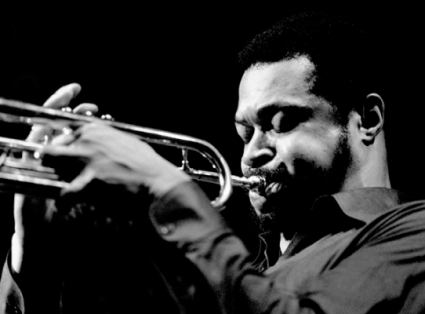
”Every Time” by Michel Krug
The Sunday Poem is published weekly, and strives to include the poet reading their work.... Michel Krug reads his poem at its conclusion
Click here to read previous editions of The Sunday Poem


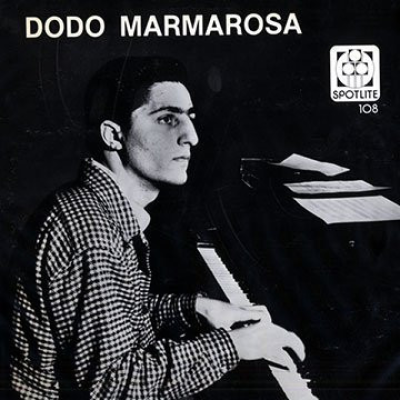
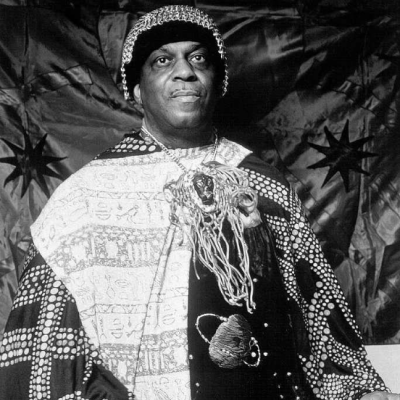
Click here to read more short fiction published on Jerry Jazz Musician
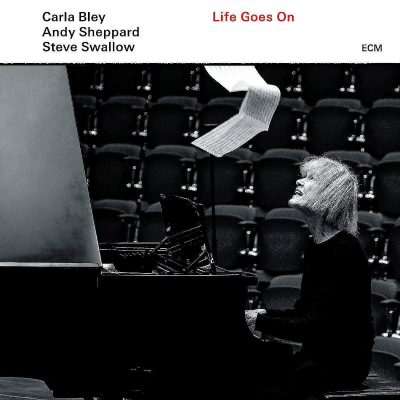

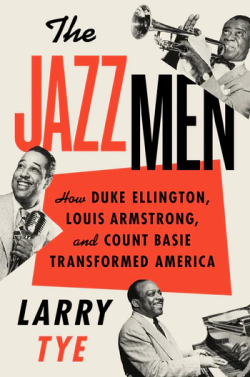
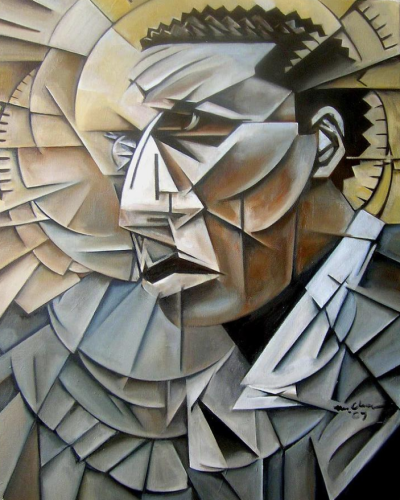



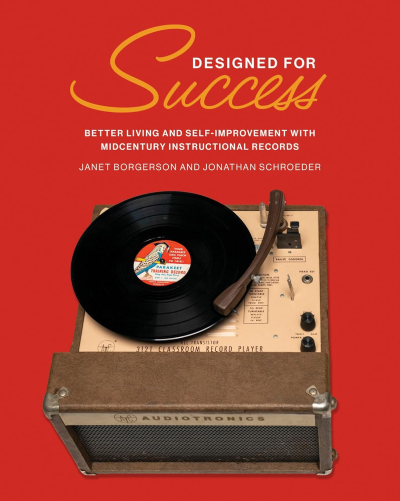


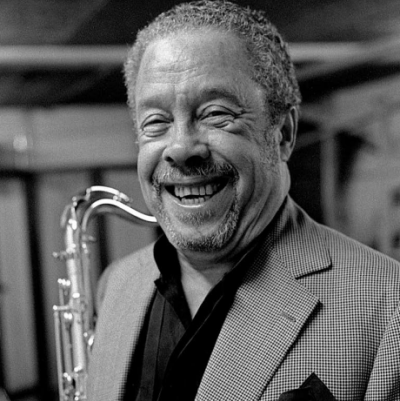
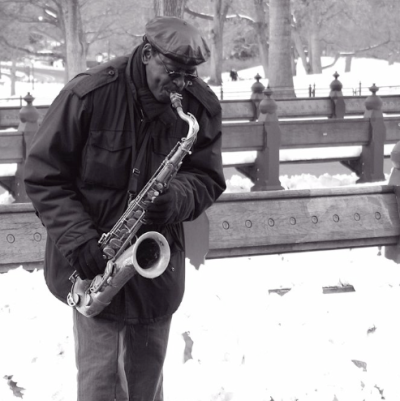
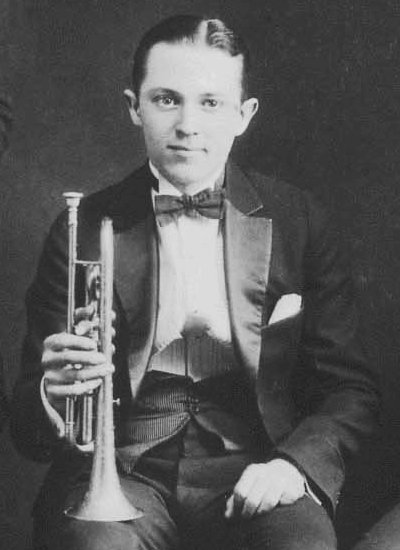
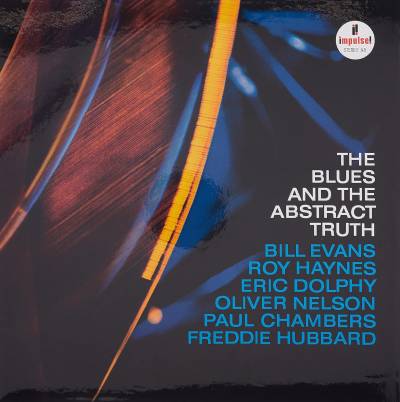


Click here to read more book excerpts published on Jerry Jazz Musician
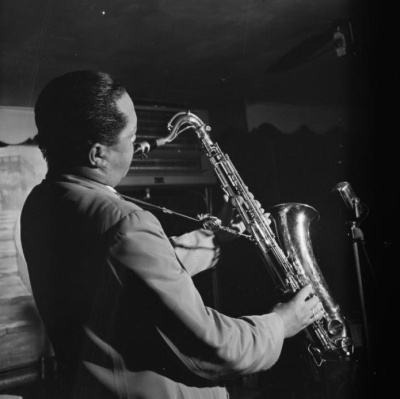
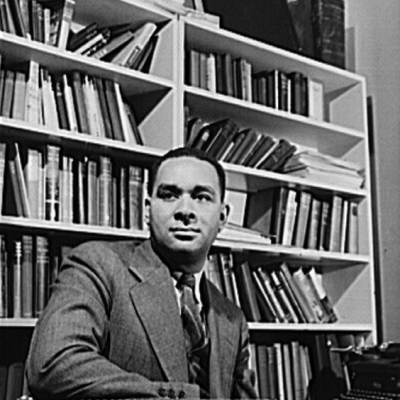




Dear Readers:
Reader funding helps support the expense of publishing this website, and to keep it free of advertising – which is a rarity in the dot-com world. Many thanks to those who have recently contributed, and to those who have done so multiple times. Your support is very much appreciated.
If you are able, please consider making a contribution? Information regarding how to do so is found by clicking here.
For viewing my long range vision for Jerry Jazz Musician, please click here.
Thank you!
Joe Maita
Editor/Publisher
,

